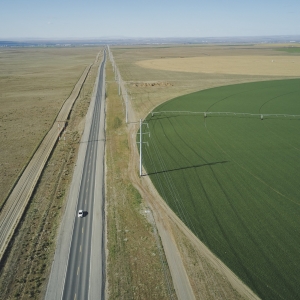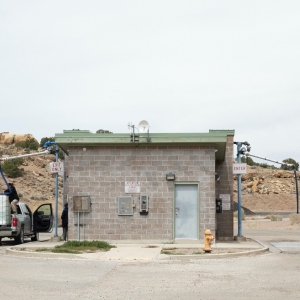The Stream, May 7, 2021: Vietnamese Farmers Turn to Shrimp As Salination Threatens Rice Crop
YOUR GLOBAL RUNDOWN
- Vietnamese farmers are starting to raise shrimp instead of growing rice due to increased salination in the Mekong Delta region.
- Industrial waste is being dumped into Iraq’s rivers and seas.
- A U.S. pipeline company won’t sue Tennessee residents for refusing to allow construction on their land.
- A U.S. envoy visits East Africa in an attempt to resolve a decade-long conflict over the filling and operating of an Ethiopian dam on the Nile River.
Canadian insurers plead for the federal government to speed up a plan to create new nationwide flood-risk maps.
“Flooding is by far the single greatest peril facing Canadians as result of climate change.” – Craig Stewart, vice president of federal affairs for the Insurance Bureau of Canada. Because the Canadian government plans to focus its next budget on tackling climate change, insurers are concerned that the government won’t create flood maps fast enough to adequately protect homeowners. Reuters reports that Canada’s natural resources ministry is proposing it do the mapping itself, which could take up to 10 years to complete.
- Why it matters: Flooding is also a major threat to Michigan residents. And the consequences of climate change in the state are not equally distributed. Or, in the words of Jeremy Porter, the head of research and development at First Street Foundation, a Brooklyn-based research group, flooding tells “two different stories.” One of them, Porter said, belongs to financially struggling families who are unaware of flood risks. The second story applies to wealthier residents living in highly desirable coastal areas who can afford to spend large sums of money to adapt.
IN RECENT WATER NEWS
In Case You Missed It:
Cheese in the Desert: Why Mega-Dairies are Piping Water onto Oregon’s Shrub-Steppe – An environmental coalition is lobbying for a moratorium on mega-dairies, which have proliferated in a water-challenged area of northeastern Oregon.
Some Rural California Residents Doubt They’ll Ever Get Clean Water – Some rural California communities have waited nearly a decade for state regulators to repair their tainted drinking-water systems. This piece is part of the Tapped Out collaboration, exploring power, justice & water in the West.
Chemical Impact: Microplastic Pollution More Complex Than We Think, Says New Research – Microplastic pollution has been building up in the Great Lakes for at least four decades, but our understanding of its impact on fish and other aquatic creatures is only just catching up.
Vietnamese Rice Farmers Forced To Raise Shrimp As Salt Water Destroys Coastal Farms
Rising sea levels in Vietnam are increasing salinity in the Mekong Delta region, forcing many rice farmers to raise shrimp instead. Reuters reports that the switch to shrimp farming could supercharge the country’s seafood industry. At least one-third of rice farms along Vietnam’s Soc Trang province have been affected by increased salination over the past few years and officials have urged farmers to adapt.
TODAY’S TOP WATER STORIES, TOLD IN NUMBERS
70 PERCENT
Data compiled by the United Nations and academics shows that 70 percent of Iraq’s industrial waste is dumped directly into rivers or the sea, Al Jazeera reports. The waste is particularly threatening to marshes reputed to be the home to the biblical Garden of Eden, which has been named a world heritage site.
1 MILLION PEOPLE
The Plains All American Pipeline company will stop pursuing lawsuits against Tennessee property owners who refused to sell access to their land for pipeline construction, the Associated Press reports. Plains, along with Valero Energy, is attempting to build a 49-mile underground pipeline between Memphis, Tennessee, and Byhalia, Mississippi. If built, the pipeline would run underneath the
ON THE RADAR
Jeffrey Feltman, the U.S. envoy for the Horn of Africa, met with Egypt’s president on Wednesday as part of a tour throughout Eastern Africa aimed at finding a resolution to the decade-long negotiations over the Grand Ethiopian Renaissance Dam, the Associated Press reports. Egypt, Sudan and Ethiopia have failed to agree on terms for filling and operating the massive dam, which has led to concerns that the dispute could escalate into a military conflict.
Jane is a Communications Associate for Circle of Blue. She writes The Stream and has covered domestic and international water issues for Circle of Blue. She is a recent graduate of Grand Valley State University, where she studied Multimedia Journalism and Women, Gender and Sexuality Studies. During her time at Grand Valley, she was the host of the Community Service Learning Center podcast Be the Change. Currently based in Grand Rapids, Michigan, Jane enjoys listening to music, reading and spending time outdoors.






Leave a Reply
Want to join the discussion?Feel free to contribute!